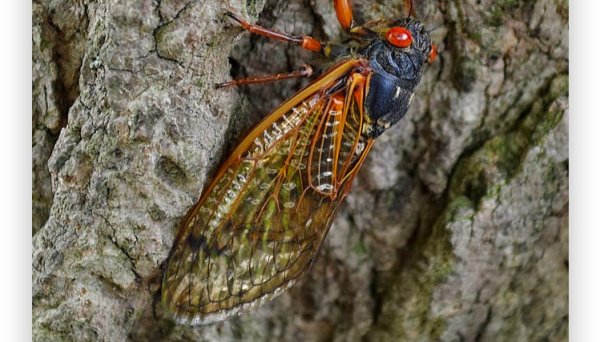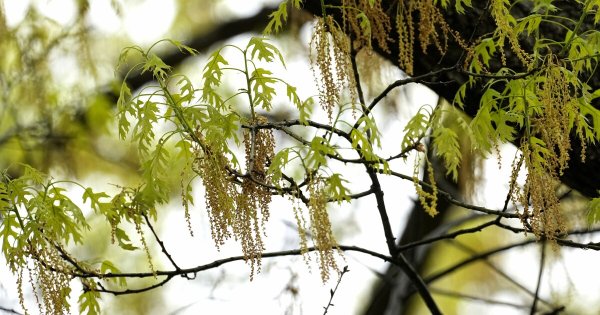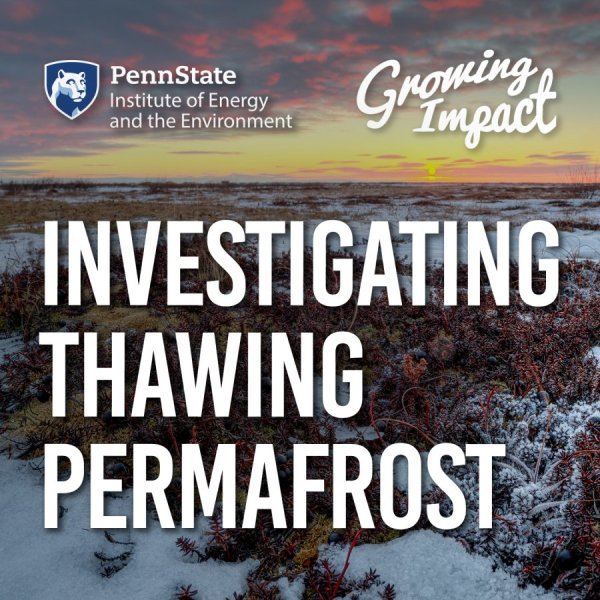'Research Art Collection' showcase in Old Main
| psu.edu
"Research Art Collection," is on display in the Office of Senior Vice President for Research on the third floor in Old Main at University Park. The exhibit showcases the art of research and the research of art and is open to the public.
Three faculty honored with Eberly College of Science distinguished awards
| psu.edu
Three faculty members in the Penn State Eberly College of Science have been selected to receive awards related to their outstanding service contributions and mentoring work.
Penn State pollinator experts author a new book that explores the lives of bees
| psu.edu
Two renowned pollinator scientists in Penn State’s College of Agricultural Sciences and the Huck Institutes of the Life Sciences have co-authored a book that sheds light on one of the Earth’s most invaluable resources: bees.
Study proposes new mechanism to explain how the first continents formed
| forbes.com
A new study suggests that the exposure of volcanic rocks to wind and rain about 3 billion years ago triggered a series of geological processes forming the cores of today's continents. This article features Penn State research.
Penn State research center offers industry practicum on additive manufacturing
| psu.edu
The Penn State Center for Innovative Materials Processing through Direct Digital Deposition (CIMP-3D) is now accepting registrations online for a three-day additive manufacturing practicum aimed at industry members and academics, including Penn State students, postdoctoral scholars and faculty. The workshop will begin on Tuesday, July 30, and run through Thursday, Aug. 1, at the CIMP-3D Additive Manufacturing Demonstration Facility, located in the Guion S. Bluford Jr. Building at Innovation Park.
Brandywine hosts annual youth STEAM event
| psu.edu
The Brandywine LaunchBox held its annual Youth Science, Technology, Engineering, Arts and Math (STEAM) and Startup Day on May 7. More than 60 seventh-grade students from four local middle schools (Haverford Middle School in Havertown, Lionville Middle School in Exton, Northley Middle School in Aston and Upper Merion Middle School in King of Prussia) attended the event to learn about physics, entrepreneurship, robotics and more.
Master Watershed Steward volunteer Carol Armstrong makes waves
| psu.edu
With a background as a neuropsychologist and cognitive neuroscientist, Carol Armstrong joined the Penn State Extension Master Watershed Steward program to address her growing concerns about the environment. In 2019, she became the first Master Watershed Steward statewide to surpass 1,000 volunteer hours.
Research finds increasing temperatures can limit ability of trees to filter air: '[Trees] are essentially coughing instead of breathing'
| thecooldown.com
New research found that in several places, increasingly warmer temperatures are preventing trees from absorbing carbon dioxide. This article features Penn State research.
What are roads made of? A pavement materials engineer explains the science behind the asphalt you drive on
| theconversation.com
Summer means road construction − but what kind of engineering goes into laying down pavement? This article was written by Mansour Solaimanian, a research professor at the Larson Pennsylvania Transportation Institute.
A cicada apocalypse is coming this summer: Will Pennsylvania be spared the noisy invasion?
| ydr.com
For the first time in more than 200 years, two different broods of cicadas will emerge. This article quotes Michael Skvarla, assistant research professor of arthropod identification.
Antarctica’s Thwaites “Doomsday” glacier
| voanews.com
Thwaites Glacier located in Antarctica, is an unusually broad and vast glacier. Known as The 'Doomsday Glacier', scientist say it is rapidly melting. We look at the danger of global warming's effect on Thwaites Glacier, with the increased melting from the glacier causing sea levels to rise. This broadcast TV segment features an interview with Sridhar Anandakrishnan, professor of geosciences.
'Extreme' pollen counts, climate change fuel Pa. allergy misery
| wesa.fm
As warmer temperatures start earlier and last longer, pollen growth leads to more people suffering from allergy symptoms across Pennsylvania. This article mentions Penn State research.








![Research finds increasing temperatures can limit ability of trees to filter air: '[Trees] are essentially coughing instead of breathing'](/sites/default/files/styles/large/public/cover-images/research-finds-increasing-temperatures-can-limit-ability-trees-filter-air-trees-are-essentially.jpg?itok=akRBz2AN)




